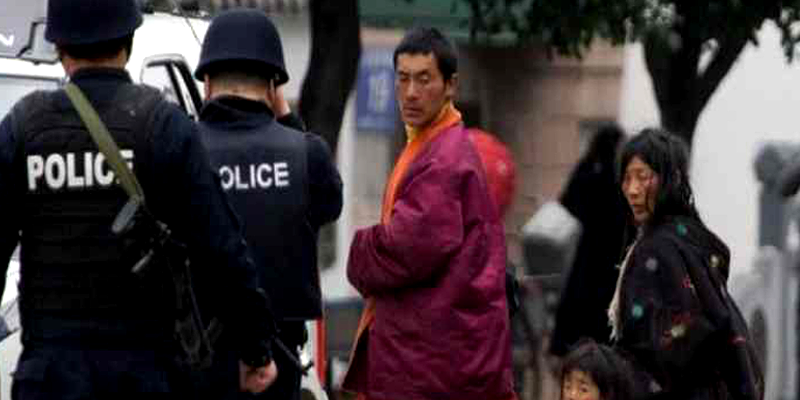In the past few days, I tried to think and analyze on an unusual and candid comment made by a Tibetan woman who is a soprano in Chinese army and a current member of Chinese People’s Political Consultative Conference (CPPCC). Gowa Gyamo Kyi has long career in Chinese army as singer who normally performs at big national galas. She shared her personal experiences of the rampant Chinese prejudices against ethnic minorities – particularly Tibetans and Uighurs during a panel session of CPPCC in Beijing. The English version of the story was first covered by SCMP on 6 March.
This happened during her visit to Beijing after the 2008 pan Tibetan national uprising against Chinese rule.
“One time I led a group of performers to Beijing,” she said. “Everyone checked in to their hotels, but I wasn’t allowed to, because I was Tibetan.”
“I showed them my CPPCC membership ID and my military ID but still wasn’t allowed to check in. I had to stay at a friend’s place,” she said.
After reading it for a second time, I could not help but wonder if a Tibetan with her fame and status could not check in a hotel, what about the rest – the majority of those who have nothing except their Tibetan identity.
The racial prejudice of Han Chinese against Tibetans is always there even before the 2008 Tibetan uprising. The only difference is that after 2008, it became more visible and frequent. This has lot to do with how Chinese government manipulated the Tibetan pan protest as something against Chinese people instead of the government. During the prime time of all the national televisions, some edited video footages of the protest played time and again explaining how the ungrateful Tibetans have turned against Chinese people. The same people who ‘liberated’ and brought prosperity to them. Chinese people are more than ready to believe and burst out their anger against Tibetans irrespective of whether one is a high ranking official or just common people. Just being a Tibetan is enough.
Looking at past and present examples of racial discriminations in the world, colonialism and racism in many ways, go hand in hand. For example, during European colonialism in Asia and Africa, the colonial countries exercised their power over the colonial subjects often in unequal terms, this also went along with racial stereotypes against the natives. Behind every colonialism there is some racism and difference is only degree. Those belong to the winner’s group tend to not only look down on the defeated but also discriminate them in many ways – official and unofficial. Colonialism therefore, has a racist soul.
Therefore, behind the rampant discrimination against Tibetans as minority nationality in today’s PRC, there is the Chinese political control over the people of Tibet, which is by any definition more colonial than communist and of course more Chinese than Tibetan. The political power gives them the power to engage in racial discriminations against other non-Chinese people they control like Tibetans, Uighurs and Mongolians. The political power gives them the impetus to hold racial prejudices.
If the same thing happens in the other way round, what will be the consequences? For instance, a Chinese who is a member of both the PLA and CPPCC come to Lhasa and a Tibetan hotel refuses him/her admission. It is everyone’s guess that nothing good will happen to the hotel or its staffs. At an individual level, obviously Gowa holds more power than a Chinese hotel staff but since the collective power of Chinese people are far more than that of Tibetans, she could do nothing despite her positions in the army and government. This also brings out the fact that under colonial rule, those few natives who get some positions within the state structure of colonial power often turn out be more of a colorful decoration than a concrete demonstration of exercising real power.







Leave a Reply